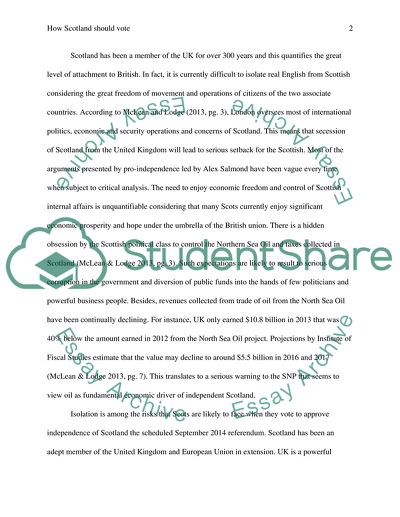Cite this document
(How Should Scotland Vote Essay Example | Topics and Well Written Essays - 1500 words, n.d.)
How Should Scotland Vote Essay Example | Topics and Well Written Essays - 1500 words. https://studentshare.org/politics/1636835-how-should-scotland-vote
How Should Scotland Vote Essay Example | Topics and Well Written Essays - 1500 words. https://studentshare.org/politics/1636835-how-should-scotland-vote
(How Should Scotland Vote Essay Example | Topics and Well Written Essays - 1500 Words)
How Should Scotland Vote Essay Example | Topics and Well Written Essays - 1500 Words. https://studentshare.org/politics/1636835-how-should-scotland-vote.
How Should Scotland Vote Essay Example | Topics and Well Written Essays - 1500 Words. https://studentshare.org/politics/1636835-how-should-scotland-vote.
“How Should Scotland Vote Essay Example | Topics and Well Written Essays - 1500 Words”. https://studentshare.org/politics/1636835-how-should-scotland-vote.


